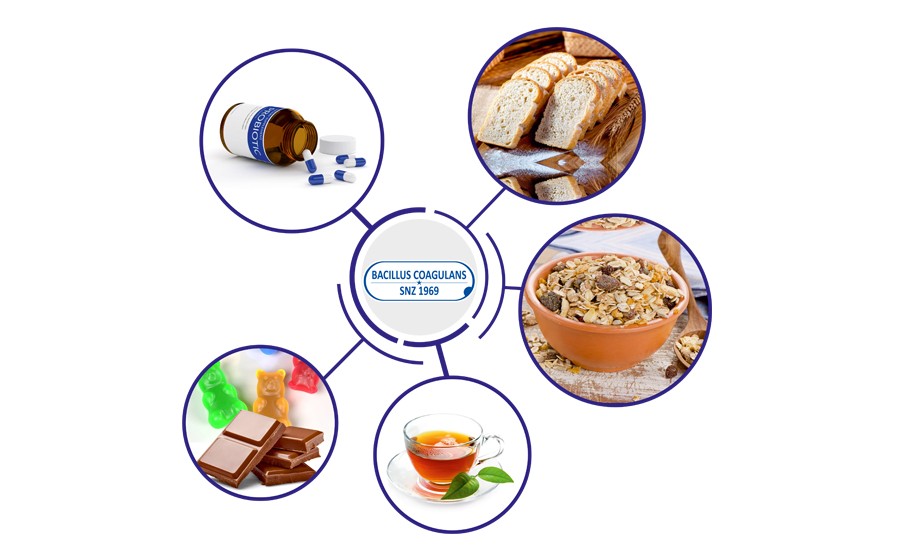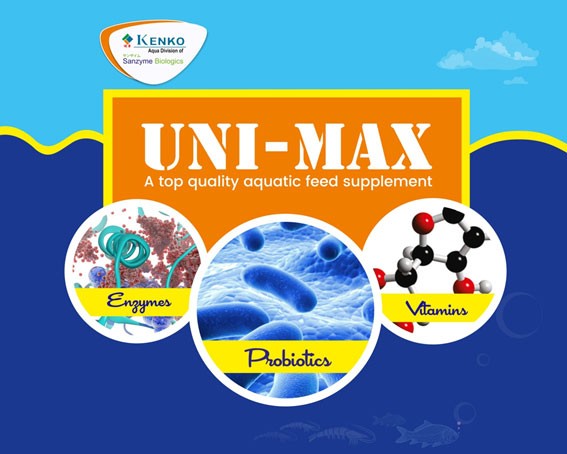The interest in probiotic foods is increasing due to the growing consumer demand for safe and functional foods with health-promoting properties and high nutritional value. Probiotics are live organisms that when administered in adequate amounts, confer a health benefit on host.
Although generally used in dairy products, they are also widely used in various commercial food products such as gummies, muesli, cereal bars, chocolates, candies, compressed, tablets, health beverages, tea bags, coffee mixes and protein supplements etc. Probiotics experts attribute the wide prevalence of probiotics application in dairy products as a marriage of convenience due to cold chain and less harsh thermal processing. The conventional vegetative probiotic strain requiring refrigeration is often clubbed with dairy cultures supply chain. With innovation in encapsulation technology and availability of spore forming probiotic organisms the cold chain and thermal processing are no longer a constraint. The goodness of probiotic can well go beyond dairy products.
Demand is growing for functional ingredients, particularly those that can support digestive health, which is a concern for 71% of global consumers. This awareness is likely to increase as customers will seek health benefits from their food during and after the ongoing COVID-19 pandemic. Research has found immune health may be rooted in maintaining a healthy balance in the gut microbiome, supporting digestive health has the potential to confer immunity benefits.
Here are some interesting facts about probiotics and consumer trends:
- Digestion and immunity are leading health benefits in terms of prevalence in probiotic products1.
- Over 1000 immunity probiotics saw a spectacular 786% growth in online customer reviews in two years2.
- China’s National Health Commission and National Administration of Traditional Chinese Medicine have used probiotics along with conventional treatment in patients with Covid-19 infection for improving the balance of the intestinal flora and preventing secondary bacterial infections3.
- A third of consumers are trying to manage digestive problems. In 2017, 83% experienced some type of digestive issue; 65% suffered indigestion, gas, bloating, or flatulence; 56%, heartburn/reflux; 54%, diarrhea; and 48%, constipation4.
- Four in ten consumers (38%) look for probiotics in foods5.
Probiotic microorganisms are generally considered to beneficially affect host health when used in adequate amounts. In order to obtain benefits, probiotic products should contain at least 107–109 CFU/g probiotic microorganisms and should survive until the end of shelf life. Probiotic microorganisms, which are naturally found in intestinal microbiota, could protect humans from diseases, modulate and strengthen the immune system, prevent tooth decay, have anticarcinogenic properties, and be effective against coronary heart disease. Probiotic microorganisms can produce organic acids (such as lactic and acetic acid), hydrogen peroxide, and bacteriocin. Probiotics have several mechanisms that inhibit pathogen microorganisms.
Food production involves various processes such as heating, fermentation, freezing, thawing, drying etc that can affect the survival of probiotic microorganisms during probiotic food production. Food additives, oxygen content, redox potential, moisture content/water activity, storage temperature, pH and titration acidity, and packaging conditions are also other factors that affect survival of probiotic microorganisms during storage. Lactic acid bacteria (LAB; for example, Lactobacillus and Bifidobacterium and some are the microorganisms most commonly used in probiotic food production. However, these microorganisms cannot survive heat treatment, for which the cold spot temperature is approximately 75 °C. Heat treatment is not applicable for most probiotic foods that contain commercial probiotic microorganisms due to their sensitivity to heat. As a result, spore-forming probiotic microorganisms can provide a timely solution to this issue, allowing manufacturers to enhance their products with added health benefits6.
B. coagulans SNZ 1969 is a gram-positive, facultative anaerobic, nonpathogenic, spore-forming, lactic acid-producing bacteria. Bacillus coagulans SNZ 1969 is shielded by natural encapsulation called spore. It can sustain hostile gastric and bile acids in human gut and remains stable in highly acidic (pH 2) environment. It is also resistant to high temperature i.e. up to 85°C for 30 min.
Our Bacillus coagulans SNZ 1969 has been reported as safe by the US Food and Drug Administration (FDA) GRAS status granted specifically on this strain and the European Union Food Safety Authority (EFSA) via inclusion in its Qualified Presumption of Safety (QPS) list.
Heat-treated food products are generally not used for probiotic purposes because of the factors affecting their viability and stability. In order to obviate this difficulty, Bacillus coagulans SNZ 1969 could be used as probiotics due to its heat-resistant spore form. B. coagulans SNZ 1969 is able to survive in high-temperature heat treatments and stomach conditions compared with other commercial probiotic microorganisms. It is an ideal choice for the development of cereal-based functional products because these spores can maintain their viability in heat-treated processes such as baking and boiling. In addition, the spores are shelf stable during the storage, without the need for cold chain temperature controls.
Consumer interest in healthier and more functional food is increasing due to changing consumption habits and increasing interest in food and health. In addition to supporting the clinically beneficial effects of probiotic microorganisms on health, the formulation of probiotic food products has great importance for consumers, industry, and research centers which are interested in the subject. Heat-resistance of probiotic BACILLUS spp. spore forms can provide an advantage for heat-treated probiotic foods. Bacillus coagulans is attracting interest due to its resistance to strong gastric acid and high temperatures, and it is Saccharomyces species) more resistant to antibiotics than other LAB. Moreover, the products, which are used in food industry and could be produced by Probiotic Bacillus coagulans, are gaining attention due to their low cost and as an alternative to other chemical sources.
SANZYME BIOLOGICS: in addition to producing its own proprietary strains is also a trusted CMO for companies wishing to develop and commercially produce their own Probiotic strains. Services provided include – Toll Manufacturing, Sample Generation (for trials), and CRO services. SANZYME BIOLOGICS facilities are NSF certified, FAMI QS certified, ISO – 220000-2005, and ISO-9001-2015 certified.
References:
1&2. Lumina Intelligence report on probiotics 2020
3. J Dig Dis. 2020; 21:125–126.
4. Mintel 2017
5. Hartman 2017
6. Foods. 2018 Jun; 7(6): 92.





